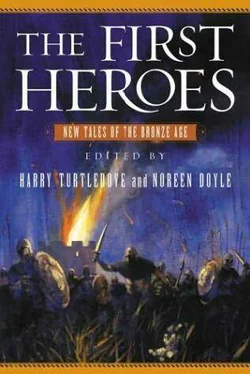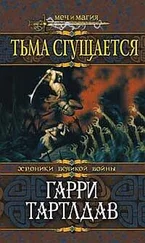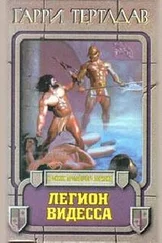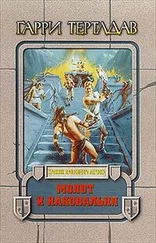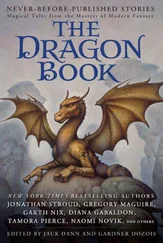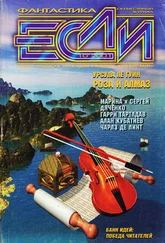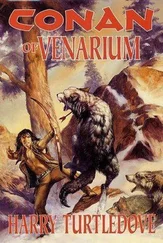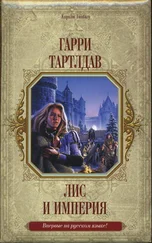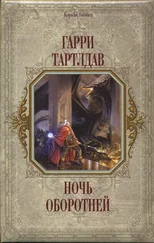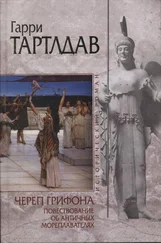Гарри Тертлдав - The First Heroes
Здесь есть возможность читать онлайн «Гарри Тертлдав - The First Heroes» весь текст электронной книги совершенно бесплатно (целиком полную версию без сокращений). В некоторых случаях можно слушать аудио, скачать через торрент в формате fb2 и присутствует краткое содержание. Жанр: Фантастика и фэнтези, на английском языке. Описание произведения, (предисловие) а так же отзывы посетителей доступны на портале библиотеки ЛибКат.
- Название:The First Heroes
- Автор:
- Жанр:
- Год:неизвестен
- ISBN:нет данных
- Рейтинг книги:3 / 5. Голосов: 1
-
Избранное:Добавить в избранное
- Отзывы:
-
Ваша оценка:
- 60
- 1
- 2
- 3
- 4
- 5
The First Heroes: краткое содержание, описание и аннотация
Предлагаем к чтению аннотацию, описание, краткое содержание или предисловие (зависит от того, что написал сам автор книги «The First Heroes»). Если вы не нашли необходимую информацию о книге — напишите в комментариях, мы постараемся отыскать её.
The First Heroes — читать онлайн бесплатно полную книгу (весь текст) целиком
Ниже представлен текст книги, разбитый по страницам. Система сохранения места последней прочитанной страницы, позволяет с удобством читать онлайн бесплатно книгу «The First Heroes», без необходимости каждый раз заново искать на чём Вы остановились. Поставьте закладку, и сможете в любой момент перейти на страницу, на которой закончили чтение.
Интервал:
Закладка:
But of Orqo's own mother, who faithfully managed her husband's household and who actually spent more time with Kusi than did Mama Runtu—of her, Orqo had never heard a kind word spoken. He had lain awake at night, seething with anger at the whispers he had overheard. Qori Chullpa never bathed Orqo in cold water; no wonder he looks sickly. She picked him up and held him whenever he cried; no wonder he whines and insists on his own way. She gave him toys and indulged his every whim; no wonder he spends his days eating and drinking and dressing himself in fine things. Qori Chullpa ruined Orqo—and now Wiraqocha asks us to accept him as our lord?
Orqo swam hard again, his anger renewed. Yes, it was true that he had spent much time in feasting and merrymaking—what else would his father allow him to do? And he wore the best cloth, the finest sandals and pins and earplugs. His father insisted.
The people, they didn't understand. Let them try to live his life. Let them live the life of the heir and favorite son of Wiraqocha. In any case, when he, Orqo, was Inka, the gossip would stop. Anyone who spoke ill of Qori Chullpa would die. And he would expose Mama Runtu's madness to the world. Hear the wanka-kuna? He might as well claim that he heard them himself!
The current slammed him into a rock before he had time to swim around it, and his shoulder burned. Damn you, Mama Runtu, he thought. But Kusi, now, that was another question. His mother was right about Kusi—he was different. Did he hear the wanka-kuna? Did the gods and the stones and the ancestors speak to him? Kusi had tried to show him, once—
"Ssst! Orqo!"
Orqo awoke to a voice no louder than the buzz of a fly.
"They're all asleep," Kusi whispered. "Let's go!"
Orqo rose from his bed, leaving his sandals. Qori Chullpa lay at the other end of the room, and a few younger siblings sprawled in the space between. Even the qowi-kuna, the guinea pigs, slept huddled in a corner, instead of running about and disturbing people's sleep.
Kusi was already at the doorway. The men who sat on either side, facing the courtyard, had indeed nodded off; this was a rare opportunity. Orqo tiptoed between them, then ran after Kusi toward the garden. His heart thudded, making it difficult for him to listen for others who might be up and about, and report an errant prince to Wiraqocha. But they reached the small grove of qewna trees without seeing anyone. The front entrance of the palace, Orqo knew, was flanked by guards who would not fall asleep, but Kusi had assured him that the trees offered a way over the wall.
"Watch me." Kusi mouthed the command and then swung himself up on a branch. The tree looked barely strong enough to hold his weight, but with his feet halfway up the trunk, he could lean over and just catch the top of the stone wall with his hands. He pulled himself up and scrambled over the top.
Orqo, conscious of his greater size and clumsiness, climbed as high as he dared. The peeling bark scratched his bare legs and arms. But he could not turn back. He leaned for the wall and managed to put his arms across the top. For a moment his legs swung wildly, but he found a crevice with his toes, and finally he was over.
How would they get back in? he wondered. But Kusi tugged at his hand, and they ran through the streets of Qosqo lit only by the stars— Mama-Killa, the moon, lay hidden that night. They met only the occasional late-night traveler, too hurried or too drunk to care about a pair of mischievous boys. When the last house lay behind them, Kusi ducked behind a rock. Orqo crouched next to him, panting.
"How far is it?" he whispered.
"Not far."
"Do you know who it is?"
Kusi shook his head. "I've never heard anyone speak of it. It is very old. Perhaps one of the first."
"First what?"
"Inkas."
Orqo fell silent, suddenly oppressed by the enormity of what they were about to do—visit an ancestor, alone, in the darkness. Then Kusi sighed. "I didn't tell you," he whispered. "What?" Orqo trembled. "What, Kusi?" Kusi's thin fingers closed around Orqo's arm. " It spoke to me. No one else was there. But I heard it."
Orqo stared at the rock. So this was why Kusi was so eager to sneak out and risk Wiraqocha's fury.
"What did it say?" Orqo asked.
For a long moment, Kusi did not answer. What terrible thing had he heard? Orqo wondered. An omen of doom? Again Kusi sighed, and he looked up at the brilliant stars. "It called me Inka." He shook his head and turned to Orqo. "But I'm not to be Inka. You are."
A cold chill gripped Orqo. "I think you should not tell me this."
"Who else am I to tell? Father? My mother?"
Orqo remembered the pale face of Mama Runtu, and Kusi's pride in her—and that she claimed to hear the gods and spirits. "Why not your mother?"
Kusi stared silently at the ground, but Orqo heard his breathing, labored and slow as if he gathered strength, or courage. "I am afraid of what she would do. I don't want to cause trouble. I don't want to be Inka." Then he looked at Orqo with luminous eyes. "But if anything happened to you, Orqo—to you and Father—I would work hard to be a good Inka. I would protect our people."
Orqo's stomach knotted. "Kusi, don't—"
Kusi let go of Orqo and jumped up. "Come. You must hear, too."
Orqo followed him into the darkness, inwardly cursing the stones that jabbed at his feet. He always wore sandals—Wiraqocha insisted— and his feet were not as tough as Kusi's. But Kusi must never suspect weakness. So he bit his tongue.
Orqo was limping by the time they reached the mouth of the cave. Tucked behind a boulder, and visible only as a sliver of shadow in the starlight, it would have been nearly impossible to find even in the day, Orqo thought. Indeed, when he squeezed in after Kusi, he had to let out all his breath, and still the rock raked his back like a puma's claws. He sighed. Any chance their adventure would go undetected had just vanished.
Inside it was so dark and silent he felt he must have fallen into Pakariytampu, the cave from which the four Inka ancestors and their sister-wives had emerged onto the earth. Kusi's sudden whisper made him jump.
"Here, Orqo. Touch it." A hand bumped into him, felt its way down his arm, grabbed his wrist. Orqo had to lean over as Kusi pulled his left hand down, down toward the cave floor. At about the height of his knee, his palm met something dry and dusty-feeling—cloth, Orqo realized, the ancestor's clothing.
"Your other hand, too."
Reluctantly Orqo knelt and lifted his right hand, inching it into place next to his left. Something stringy brushed his fingers, and he suppressed a scream. This hand rested not on cloth but on something dry and wrinkled, like a maize husk. Skin, he realized, and the strings were hair. He must be holding the mummy's shoulder. His own skin trembled as if ants crawled all over his body.
"Are you touching it?" Kusi asked.
Orqo nodded, then realized the gesture was useless in the darkness. "Yes," he whispered. The mummy's skin felt warm under his hand, and the darkness was so complete he wondered if he would go blind. Kusi said no more, and the silence became unbearable. Orqo tried to think of an excuse to leave.
"Shouldn't we offer it a sacrifice?" he said.
"I brought one."
For a terrible moment Orqo wondered if Kusi meant him—then he felt a bit of fur against his arm, and a soft plop as it fell to the ground. "Qpwi," said Kusi. "Is it enough?" "Last time I brought nothing." Nothing? Surely that settled it, Orqo thought. No ancestor or god or stone would talk to someone who brought nothing.
He heard Kusi settle himself on the floor. The warmth of Kusi's body radiated across the space between them, though they were not touching. "What do we do?" Orqo whispered. "Wait." So Orqo waited. He continued to shake, and he hoped Kusi could not feel his tremors. Coldness seeped from the floor of the cave into his legs. He could see nothing, and hear nothing save his own breathing and Kusi's.
Читать дальшеИнтервал:
Закладка:
Похожие книги на «The First Heroes»
Представляем Вашему вниманию похожие книги на «The First Heroes» списком для выбора. Мы отобрали схожую по названию и смыслу литературу в надежде предоставить читателям больше вариантов отыскать новые, интересные, ещё непрочитанные произведения.
Обсуждение, отзывы о книге «The First Heroes» и просто собственные мнения читателей. Оставьте ваши комментарии, напишите, что Вы думаете о произведении, его смысле или главных героях. Укажите что конкретно понравилось, а что нет, и почему Вы так считаете.
